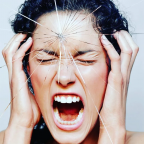
"ARGENTINE PSYCHOANALYSIS:
ACTUAL NEUROSIS – PSYCHOSOMATIC PATHOLOGY –
TRANSFERENCE, ACTUAL TRANSFERENCE, COUNTERTRANSFERENCE"
|
||
|
In this course, students will learn about the history of the development of Argentine psychoanalysis and the ideas of leading psychoanalysts such as Angel Garma, Fidias Cesio, Heinrich Racker, Julio Granel, Willy Baranger, etc.
|
||
| The main part of the program is devoted to theoretical and practical exploration of the problems of actual neurosis, psychosomatic pathology, transference, actual transference and countertransference. | ||
| CENTRAL TOPICS AND IDEAS — | ||
| Psychosomatic disorders – | ||
|
The dichotomy of body and soul is actually misleading, since both are manifestations of a phenomenon called life.
|
||
| Actual neurosis – | ||
| Psychoanalytic understanding of the problem of actual neurosis. When resolving neurosis, what manifests is the actual, underlying part of the neurosis, which presents great difficulties and resistance in the course of psychoanalytic therapy (clinical study). The "basis" of an actual neurosis can often be the cause of psychosomatic, borderline, narcissistic, hypochondriacal disorders, etc. How to work with an actual neurosis? | ||
| Transference, actual transference, countertransference – | ||
|
The inner world of the analyst is as much a subject of analysis as the inner world of the patient. The phenomena related to countertransference correspond to a specific type of transference – actual transference.
(Fidias Cesio). |
||
| IMPORTANT! Theoretical mastering of the learned material will be supported by supervisions of clinical cases with an in-depth study of transference and countertransference. | ||
| COURSE OBJECTIVES | ||
| — To provide the students with additional knowledge in the field of the Argentine psychoanalysis. — To expand and deepen their theoretical and practical skills in terms of the technique [АК1] of psychoanalytic psychotherapy. — To give the students an opportunity to master the achievements of Argentine psychoanalysis and to form an idea about its possible application in their own practice. — To show on live material how to use and apply the acquired knowledge in practice. |
||
| PROGRAM STRUCTURE: | ||
| Module 1. History of the development of Argentine psychoanalysis. Module 2. Mental neurosis – actual neurosis. Module 3. Psychosomatic pathology — accidents. Module 4. Transference — actual transference — countertransference. |
||
|
COURSE PROGRAM 2021
The course consists of two subprograms: one will be devoted to psychosomatic medicine, the other one — to the developments of the Argentine school of psychoanalysis relating to the actual neurosis. In the part on psychosomatics, we will consider the approaches used by various schools that have worked on these problematics; special attention will be paid to the approaches developed within the Argentine school. The part on actual neurosis will be dedicated to the development of topics that made it possible to integrate the mental and somatic. Drawing a parallel with classical medicine, we can say that a psychosomatic disorder relates to clinical medicine in the same way as an actual neurosis relates to psychopathology, which allows us to explain the disease as it is studied by classical medicine. In our field, actual neurosis describes the hidden, unconscious springs of internal psychodynamics that lead to both mental and somatic disorders. In the Argentine school of psychoanalysis, these issues were elaborated primarily by Fidias Cesio. For practical reasons, these sub-programs will alternate: one class per month will be devoted to clinical supervision. At a certain point in the course, we will focus on the analytical technique for exploring these phenomena. Within the first two or three classes of the course, we will give a concise synthesis of various approaches to psychosomatics and the development of conceptual foundations of actual neurosis, in order to fully move on to further topics. • Justifying the conceptual foundations of actual neurosis.
• Modern diseases. • Pathologies and neuroses. • Two clinical cases that started the psychoanalytic study of lethargy. • Psychoanalytic process 1. Resistance in analysis — narcissism — processing. • Psychoanalytic process 2. Mental conflict. • Finite and infinite analysis. • Psychoneurosis (hysteria – obsessive neurosis – hysterical anxiety). • Actual neurosis (somatic disorders – borderline states – acting out – addictions – insanity in transference). • Metapsychology • The castration complex and the oedipal tragedy • The unconscious content of lethargy: "the dead" – "the unborn" – the ideal Self • Original reality-ego – pleasure-ego – final reality-ego • Original rejection • The Real of drives and affects • Psychoanalysis of somatic manifestations. The second fundamental hypothesis of psychoanalysis. • Technique and clinical practice. • Actual/current transference. Transference and countertransference. • Professional deformations of a psychoanalyst. • Love of transference • Negative therapeutic response and lethargy • Unconscious guilt: melancholy and lethargy • The end of the analysis Many classes will include clinical materials. The order of topics and materials may vary depending on the course dynamics. THE HISTORY OF THE DEVELOPMENT OF PSYCHOSOMATICS IN THE ARGENTINE PSYCHOANALYSIS Notes:
– The first interagency meeting on psychosomatic medicine. Two great lines: followers of the French school, followers of the Argentine school. – Analysis of the film "My American Uncle", 1980 (Alain Resnais). |
||
| BENEFITS OF THE PROGRAM. WHAT YOU GET FROM THIS PROGRAM. WAYS TO APPLY THE ACQUIRED SKILLS | ||
| Learning about the Argentine school of psychoanalysis will allow the students to gain invaluable experience and additional knowledge in this field, master new competencies for their further practice, and come in touch with the unique experience of the Argentine school of psychoanalysis. | ||
| Upon completion of the program students receive: — Certificate of participation from IPPP, Russia. — Certificate of participation from the Center for studies in the psychoanalytic accidentology (CIPEA) |
||
| The program is designed for: Professional psychologists and psychotherapists, specialists in the field of psychology and psychoanalysis, students who are familiar with the basics of psychology and psychoanalytic psychotherapy. |
||
| SIGN UP FOR THE PROGRAM | ||
Participants are allowed to attend classes after payment.
|
Academic hours and schedule:
The program consists of 36 classes of 2 academic hours each, 72 academic hours in total. Classes are held as webinars. Before each class, students will receive a link to necessary reading materials: works of well-known authors or translations of articles by the lecturers. Each class will consist of a lecture and a Q&A part. Classes will be held once a week, on Thursdays from 19:00 to 20:30 Moscow time |
|||||||||||||||||||||||||||||||||||||||||||||||||||||||||||||||||||||||||||||||||||||||||||||||||||||||||||||||||||||||
|
Расписание занятий:
|
|||||||||||||||||||||||||||||||||||||||||||||||||||||||||||||||||||||||||||||||||||||||||||||||||||||||||||||||||||||||
|
|||||||||||||||||||||||||||||||||||||||||||||||||||||||||||||||||||||||||||||||||||||||||||||||||||||||||||||||||||||||
|
Schedule:
Alongside the webinars, the course includes supervision of clinical cases with an in-depth study of transference and countertransference. The schedule and amount of supervision hours will be determined by the course authors. The webinars will be recorded and available to the students for the entire duration of the program and 1 month after its completion. |
|||||||||||||||||||||||||||||||||||||||||||||||||||||||||||||||||||||||||||||||||||||||||||||||||||||||||||||||||||||||
Лукьянова Валерия Юрьевна

- Преподаватель программы "Проективные методы в психодиагностике: Тест Роршаха на основе интегративной системы Дж. Экснера".
- Является Индивидуальным членом «Международного Роршах Сообщества» (ISR).
- Практикующий психотерапевт.
ZOOM Platform, IPPiP training platform Links are sent on the eve of the event 12 hours before the start
e-mail: m@psychol.ru

-20% discount for the IPPP students and teachers —
— All the webinars are recorded.
— The recordings will be available for the entire duration of the program and 1 month after its completion.
— Registration for the program is possible at any time.